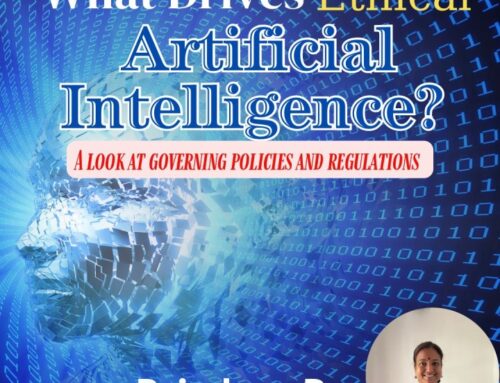The Future of Education Post Pandemic will reboot Education 4.0 with “E-Learning” taking the front seat. Let us understand the advantages, challenges, and opportunities that will rapidly transform the Education Sector in the ‘New Normal,’ since Education Cannot Wait.
The Novel Coronavirus has disrupted and left many scientists, analysts, and the futurists in despair as they couldn’t gaze or predict the rapidly changing world propelled into newer orbits not just by Science and Technology, but also by more modern political realities, sociological change, and the emergence of newer aspirations, unique opportunities, and better lifestyles. No one had ever visualized a world faced with cataclysmic change because of a “Pandemic,” a metamorphosis triggered by a “Virus.” How has this impacted especially in the Education Sector where Learning cannot be stopped, and Education cannot wait.
The Pandemic has disrupted Education Globally. Around +1.5 billion learners are out of school. Including 75 million children and youth already affected by natural disasters, armed conflicts, forced displacement, and protracted crises before the COVID-19 Pandemic hit. For these 75 million children and youth, the Covid-19 Pandemic is an additional crisis, added to the already existing crises they face. These children and youth are the most vulnerable, and ones left furthest behind. The children face increased risk of neglect, abuse, violence, and exploitation. Their overall health and mental health are being pushed to breaking point. School feeding programmes have been disrupted. Education is Life-saving because Learning never stops for any child anywhere.
Challenges:
The nationwide closures of schools and universities are impacting over 72% of the world’s student population. Several countries have implemented localized closures affecting millions of additional learners. Government around the world are making efforts to mitigate the impact of school closures, particularly for more disadvantaged communities, and to facilitate the continuity of Education for all through “Remote Learning.” School closures impact high economic and social costs for people across communities. Their impact is particularly severe for the marginalized and vulnerable girls and boys, and their families. The disruptions exacerbate already existing disparities within the ‘Education System,’ but also in other aspects of their lives. According to UNESCO, this Pandemic is unprecedented, in the ‘World of Academics’ – One that has never occurred since World War II. The human impact and scale of the Pandemic are by far more significant than any war in human history. Closure of educational institutions has a catastrophic effect on society – summarizing it as follows. Let highlight a few key challenges:
-
The transition from Classroom to Online Learning:
A school is a place where paradise can be created. The classroom, with all its limitations, remains a place of great possibilities. The last few weeks, the schools have moved from ‘Classroom to Online’ – Pedagogy to Panicgogy. As we transition to the ‘New Normal,’ we will address both myths and realities in the new emerging educational world. Academic schedules and calendars have been radically disrupted, most students outside the metro-based middle class have limited access to computers, wifi which is erratic and spotty, there is a lot of electricity outage, and synchronous virtual classes might be stressful for teachers who haven’t yet adapted working with Technology. However, given that there are not many options at the moment, the education bulwark brick and mortar face-to-face interactions, are trying to adapt to the ‘New Normal.’ Many new perspectives, learnings, and trends will emerge as we head into the “Great Unknown.”
-
Teaching vs Learning will need to be figured:
Going forward, the role of a ‘Teacher’ will be redefined. The notion of an educator or a teacher as the knowledge-holder who imparts wisdom to the pupils is no more valid for the future. Today, students acquire knowledge and learn many technical skills, with a few clicks on their computers, phones, or tablets. The education system will need to redefine the role of a teacher in the ‘Classroom’ of tomorrow. The purpose of a teacher should move towards facilitating a young mind’s development as contributing (and employable) citizens of society, rather than just lecturing.
-
Fear of Being Alone (FOBA) and Bulldozer Parents will Intensify:
Generation Z in our schools, colleges, and universities today, has grown up in a truly connected and globalized world. The Gen-Z, twenty-five years old or less, faced with shortened school terms, cancelled exams postponed sports events and delayed graduations will be troubled by Fear of Missing Out (FOMO) and Fear of Being Alone (FOBA). Education shortly will have to address the student’s loneliness of remote learning as well as the distress of lost opportunities. We will also witness the emergence of more protective, pushy “bulldozer parents” who will try to propel the ‘Generation Alpha’ (Gen A) – the children of current millennial parents – removing all obstacles out of their children’s way to create a clear path for their ‘entitled kids,’ making out as if nothing has happened in the world around us. Whereas, Generation Alpha, at this point, is oblivious to the effect of the Global Pandemic on their education. The impact will be surely felt even for our youngest learners in years to come.
-
Educational Institutions’ Financial Sustainability:
Education Institutional strategies that are solely dependent on international students for financial income (especially on Chinese/Indian students) will no longer be sustainable and such institutions unable to make the shift in their business models will not survive. This is particularly true for business schools. In an Eduvantis survey carried out among the “United States B-schools in the last week of March 2020 – 93% of the 46 responding, B-school deans said, they believed that the current crisis would accelerate the closure of business schools. While more than one quarter believe that the rate of closures will accelerate up to 10% or more than 10%.” One of the major reasons for financial losses will be the need to make some of the classes online since face-to-face teaching might not be possible for a certain period, or at least not for all students due to travel restrictions and social distancing.
More than 300 students admitted to the top MBA programmes, out of which only 17% said they would attend the MBA classes as planned if they were to start online. 43% would expect a significant reduction in tuition fees, and others would defer their studies. Online provision is less attractive to students since 96% of prospective MBA students who took part in the survey said that missing out on the full on-campus experience such as face-to-face classes, participating in extra-curricular activities and building a network with peers and relationships with faculty, was a major concern. Above all, geopolitical challenges and turbulence in some parts of the world, as well as the more restrictive immigration policies and border security controls that governments have introduced or will adopt, would have a more lasting impact on the international mobility in higher education.
Executive Education Programmes will witness a sea-change. The global university-based executive education market was worth close to $2 billion in 2019. However, this has come to a juddering halt in 2020. Wharton Executive Education Programmes is one of the largest providers of in-person and online executive education globally. Many executives choose to learn with Wharton than any other elite business school in the world. More than 12,000 attended programmes in person and over 50,000 completed online certificate courses in 2019. The decline in business caused by COVID-19 at Wharton has been significant. Still, it has been partially offset by an increase in the online enrolments and by converting some of the in-person programmes into online-courses. Be it Wharton or IIMs in India; competition is emerging from elsewhere: Israeli tech venture Jolt, for instance, runs short skills classes and specializes in live video classes led by expert tutors is seeing massive traction. Universities will need to reconfigure and reconstruct their approach significantly to stay relevant.
Advantages:
This is an age of ‘life-long learning’ in which not all learning must be completed by the age of 18. It is an age in which people can go online at any age to reskill, learn a language, learn or to sew or code. This rethink is necessary not only as a result of this crisis, inequalities, and the need to prepare our children emotionally, physically, socially and educationally for their lives in the 21st digital economy. It is because while schools have essentially staggered on, thanks to the unrelenting pressure on teachers to teach to tests, the rest of the world has changed. We make a mistake in trying to ‘cram’ too much education into children too early.
While this may have made sense in the post-war era, it does not work in an economy in which young entrants are advised to have ‘portfolio skills’ to future proof them against recession in any one industry, to develop the 4Cs (Communication, Collaboration, Creativity and Critical Reflection) to work alongside the robots and access to life-long learning to cater to the increasing number of adults who now change their career mid-life, increasingly more than once. Today’s Pandemic is an opportunity to review the education system from nursery to university. It has exposed an education system premised on reproducing the chronic inequalities of the Victorian era. The world has moved on. So should the ‘Educational Institutions.’
-
Learning to Learn:
We have an opportunity here to move expeditiously into a future stage of utilizing the crisis to upend an antiquated system and to replace it with one that engages the learner in learning and teaches them to “learn how to learn.” Universal content mastery is becoming less important, just like creativity, problem-solving, and creating new knowledge is becoming more relevant. Educational Institutions should provide all students, even those accessing good schools today, with the ability to navigate in an increasingly uncertain future. Young people need educational experiences that develop their capacity for lifelong learning, and to do this, they need schooling to focus on the full breadth of skills. Academic rigour is no longer sufficient, and in some cases, such a focus can be detrimental if it reduces the emphasis on learning how to learn, communicate, problem-solve and focus on self-development.”
-
Innovative methods of Education:
Besides the disruptions caused by the novel coronavirus, education in the developing countries have experienced significant changes. Even in the face of rapid innovation, we are yet to change how we impart education. Learning is the acquisition of knowledge and skills, but it does not have to happen through the age-old methods that don’t utilize the highest potential of our brain. Instead of being taught, can students be given an experience which influences their learning? Approaches such as experiential and integrated learning, with greater implementation of technology, will power the future of the education system globally.
-
Embracing a strong relationship with Technology:
In the face of a crippling pandemic, Technology has emerged as a major lifesaver. Communication is significant for our interconnected existence, and technology is the driving force that maintains our connections. For education, that means creating content and delivery systems that harness and utilizes technology to its fullest capacity. Perhaps, education may become more flexible and accessible, relinquishing its over-reliance on rigid structures that we currently consider an absolute necessity. Additionally, the current generations of school students are generation Z and Alpha. They are generations that are defined by their use of technology; it has become an extension of their consciousness, and they do not know a world without it. The future of education will find no room to ignore the utilization of technology since it may very well be the best platform to empower learning in an age that is integrating technology as a way of life. These generations could influence the evolution of education, as they are the ones majorly impacted by the Pandemic and are in the best position to learn and grow from it.
-
Upskilling and Reskilling will gain huge momentum:
During recessions, enrollments in the higher education programmes surges significantly as more people face a lack of job prospects or lose their jobs. Even those who are employed often see economy downsides as an opportunity to enrol back in school or other skill development programmes if they were already in lower-paying jobs. Those graduating might want to stay back in school to continue with a post-graduate degree like was witnessed in the great recession. Programmes to be pursued will surely be in the technological domain, but vocational courses might also see a significant uptick. Except that the Universities and colleges are not geared to cater to these domains, whereas the private sector is opportunistic, expensive, and shallow.
Opportunities:
The New Normal has enabled the technology-mediated education system that is termed as “Education 4.0,” The first three waves of education systems which evolved over 2000 years of civilization – The Gurukul system (one master and few pupils), the traditional university system (one to many students), and distance learning (one to very many students). The mainstream institutions are moving to ‘Online,’ to embrace Education 4.0.
-
Edtech (Education Technology) is on the Rise:
Edtech is no longer the future, it is the ‘Now.’ The Gen Z and Alpha will no more search for academic sources in hard copies of journals from the library. The acceptance of the internet and computers as being educations’ sole adaptation in 100 years is a mild disappointment. Why is the education system so focussed on the memorization of information and not comprehension? The world is shifting to competitive business collaboration, and education must change too. The students need to be prepared for the collaboration experience in working life—an important soft-skill which is massively over-looked throughout the education cycle. Edtech is at the forefront of adaptation which needs adoption faster than ever before, while innovation in education has been a slow process. The educational system which has steered away from change; is now relying on what has been rejected till now. The shutdown of educational institutes globally has led to a boom in ‘Edtech Platforms’ – BYOD, Zoom, BYJU’S, Vedantu, has stepped in to help students study from home. Google Classroom became the # 1 education app globally on Play Store with approx more than 100 million downloads. The Edtech industry was on a growth trajectory the last few years, but the Pandemic has given it a new impetus now.
-
Cost of Education:
A student debt crisis is another severe issue. While this is more pronounced in the western world, India too has lots of students (more their parents) taking education loans and in the current employment market condition becomes a serious issue. The future will see a massive demand for the online-education. Many universities are making their courses available online. Affordability will make everyone get access to ‘Education.’ The students need not incur enormous amounts towards their tuition fees, travel, living, and other expenses to get their ‘fancy’ degrees which otherwise would cost just 1/10th, which is only a click away. The Online-learning will save many of the students and parents from bankruptcy and also selling away their assets or mortgaging their properties. Education has become a business over the years. This is the right opportunity to fix it since COVID-19 has left with no choices for anyone anymore.
-
Personalized Education and Homogenized Learning:
Going forward, there will be a huge opportunity for developing new forms of integrated education which will be in higher demand. ‘Pre-crisis’ there was a growing demand for more flexible and mixed types of lifelong learning beyond primary education to address the need for upskilling and reskilling for the digital economy. Mature adult learners will be more interested in micro-credentials which enables them to acquire specific skills or knowledge. There is a growing demand for specialized skill and work-based courses or learning experiences and paths which prepares students in emerging and deep technologies such as Artificial Intelligence, Machine Learning, Big Data Analytics, Cloud computing, and more. Corporates such as Google, IBM, Apple, are interested in hiring candidates with skills rather than degrees. The fad of having fancy “degrees’ from International Universities are no longer the criteria for landing a dream job.
-
Right to Education:
The Post Pandemic or the New Normal will witness the ‘Democratization of Education.’ The Edtech not only will make education affordable by all but will also equalize standards and enable access to education to all while engaging learners in new and innovative ways. Online platforms, mobile applications, and new learning formats have massively enhanced and improved access to education significantly while enhancing the learning process itself. Online and Cloud technologies bring with them standardization possibilities for content. Therefore, be it a rundown, inner-city school or a well-funded school from a posh locality, both can receive the same standard and level of content globally. Offering developing nations access to developed educational institutions, both in an academic and professional learning setting is enabling Accessibility and Right to Education for all.
For instance, in India, the Government through its ‘Anganwadi’ means ‘Courtyard Shelter’ initiative a rural child care centre in a collaboration with UNICEF, released a calendar-based fun-filled list of activities for children to ensure 16 lakh children are engaged in a meaningful way and kept busy and not missing out on education. Similarly, in China, while academics have puzzled over best practices, China hasn’t waited around. In the last few years, the country’s investment in AI-enabled teaching and learning has exploded. Tech giants, startups, and education incumbents have all jumped in. Tens of millions of students now use some form of AI to learn—whether through extracurricular tutoring programs like Squirrel’s, through digital learning platforms like 17ZuoYe, or even in their main classrooms. It’s the world’s biggest experiment on AI in education, and no one can predict the outcome as they are way ahead in the digitizing education. Another example of where an Edtech organization called ‘upGrad’ has through its initiative has made “higher education” accessible to every aspirant whose dream of studying abroad now is available just a click away. upGrad provides rigorous industry-relevant programs in collaboration with various international universities with world-class faculty and industry. Merging the latest pedagogy, technology, and services creating an immersive learning experience available for all – anywhere and anytime.
To summarise, coping with the current pandemic isn’t been easy for anyone. As we all struggle to adapt to the ‘New Normal,’ it seems quite positive in a long time that the ‘Education System’ is ready for the ‘Digital Transformation’ which has been a long overdue. Students, Teachers and all the stakeholders within the education sector are now open than ever before to embrace it, as ‘Digitization’ goes hand-in-hand with the Gen Z and Alpha who are the future of our tomorrows’ new normal world. Edtech is no longer the future, it is now since – Education cannot wait.



